2018 Georgetown University Press. All rights reserved. No part of this book may be reproduced or utilized in any form or by any means, electronic or mechanical, including photocopying and recording, or by any information storage and retrieval system, without permission in writing from the publisher.
The publisher is not responsible for third-party websites or their content. URL links were active at time of publication.
Library of Congress Cataloging-in-Publication Data
Names: Dahl, Ann-Sofie, editor.
Title: Strategic challenges in the Baltic Sea region : Russia, deterrence, and reassurance / Ann-Sofie Dahl, editor.
Description: Washington, D.C. : Georgetown University Press, 2018.
Identifiers: LCCN 2017036327| ISBN 9781626165700 (hardcover : alk. paper) | ISBN 9781626165717 (pbk. : alk. paper) | ISBN 9781626165724 (ebook)
Subjects: LCSH: Baltic Sea RegionStrategic aspects. | North Atlantic Treaty OrganizationBaltic States. | ScandinaviaStrategic aspects. | North Atlantic Treaty OrganizationScandinavia. | Europe, NorthernStrategic aspects. | Russia (Federation)RelationsBaltic Sea Region. | Baltic Sea RegionRelationsRussia (Federation) | North Atlantic Treaty OrganizationUnited States.
Classification: LCC UA646.53 .S77 2018 | DDC 355/.0330485dc23
LC record available at https://lccn.loc.gov/2017036327

This book is printed on acid-free paper meeting the requirements of the American National Standard for Permanence in Paper for Printed Library Materials.
19 189 8 7 6 5 4 3 2 First printing
Printed in the United States of America
Cover design by Jeremy John Parker.
FOREWORD
The security of the Baltic Sea region is a topic more pertinent now than ever before in our postCold War history. At the same time, it has been rather understudied. A comprehensive compilation of state-of-the-art analyses on various topics about the region by some of the top experts in the field, this book is a welcome contribution to public debate.
Ultimately, the Baltic Sea region is becoming a theater of increased geopolitical tensions. What is becoming ever more evident is that it has become a new front line in tensions with Russia. As a result, to calm tensions along this fragile border, the West must display more resolve and unity.
Russia seeks to play a role in the Baltic region, and that should be respected as long as the interests are exercised in accordance with international law and principles. The region constitutes the most densely populated area in Russia and is a main choke point for Russian exports of goods and oil. Russian ports on the Baltic Sea handle 53 percent of Russias total container throughputtwice as much as the second-largest area, the Far East. With Nord Stream 1 and the planned Nord Stream 2 gas pipeline projects, the region has become a vital part of Russias energy policy.
Nonetheless, Russia should play the role of a constructive partner in the region rather than seeking to escalate tensions to divert attention away from its deteriorating domestic situation and economy. Unfortunately, we are now experiencing quite the opposite. We have seen a rapid worsening of the relationship between the West and Russia in recent years. Russia has illegally occupied parts of Ukraine, Russian fighter jets and submarines are displaying aggressive behavior in the Baltic Sea, and Russia has been increasing its military presence on shared borders. Despite previous assurances of the opposite, Russia has deployed Iskander-M short-range ballistic missiles to Kaliningrad, effectively exposing the North Atlantic Treaty Organizations most critical areas of the Baltic Sea. The Kremlins decision to deploy the missiles has altered the strategic landscape and rightly so set warning bells ringing in Estonia, Latvia, Lithuania, and Poland.
Our end-goal should be normalization with Russia. But we will not get there by division and weakness. The West has been slow off the mark. We failed to respond with unity and resolve when Russia seized gas supplies to Ukraine in 2006 and 2009 and when it invaded Georgia in 2008.
The 2014 invasion of Ukraine was an eye-opener for the Western community and helped to pave the way for the decision made at the 2014 NATO summit in Wales in which NATO member states decided to create a spearhead force of five thousand troops, maintained on high alert. Two years later at the 2016 summit in Warsaw, NATO additionally decided to deploy four multinational battle groups totaling five thousand troops to Poland and the Baltic countries, as well as to tailor a forward presence in Southeastern Europe as part of NATOs Enhanced Forward Presence. The recent reinforcements are the largest of their kind since the end of the Cold War and should be perceived as a clear signal to President Vladimir Putin that a Russian military invasion of any NATO Ally would trigger a response from the Alliance.
NATOs deterrence on land has improved in recent years but is far from perfect, and there are still significant gaps in its overall deterrence posture. NATOs naval presence in the Baltic Sea is inadequate. In the case of a military confrontation, Russias Baltic fleet currently has the upper hand. If we are to deter further Russian aggression, we must be able to control the Danish Straits and step up our maritime antiaccess and area-denial capabilities. At the Warsaw Summit, NATO recognized cyber as a domain along with air, sea, and land. Acknowledging the threat image was important, but NATO is still not fully prepared to respond to cyberattacks, little green men (the masked soldiers in green uniforms who appeared with Russian arms on Ukrainian territory), and Russian disinformation. The Kremlin should be allowed no wiggle room to deploy these alternative weapons.
The emerging threats are not simply a matter of capabilities, however. Responding to a resurgent Russia requires bold leadership. For the United States, this means reaffirming Americas unequivocal commitment to NATOs Article 5. On the European side, it means shouldering more of the responsibility and spending more on defense. Both need to do their part. The US must express explicit support for Article 5, and Europe should assume more responsibility for its own security.
Thus far the tensions in the Baltic Sea region have not escalated to the level of military confrontation, but the situation could easily spiral out of control if the Western world fails to demonstrate and communicate its unity and resolve. I hope this book will animate discussion on the topic and breathe new life into the debate about the security of the region.

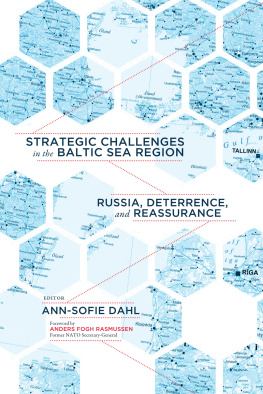


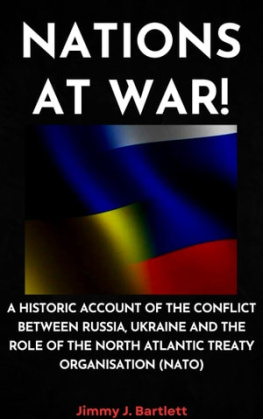


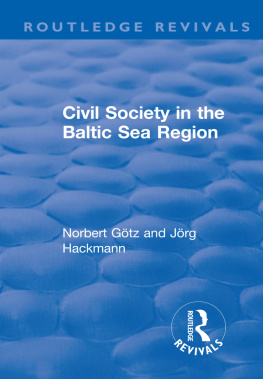

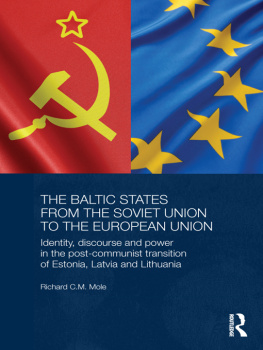
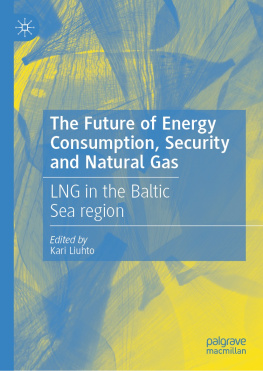
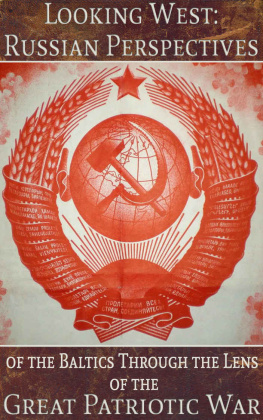

 This book is printed on acid-free paper meeting the requirements of the American National Standard for Permanence in Paper for Printed Library Materials.
This book is printed on acid-free paper meeting the requirements of the American National Standard for Permanence in Paper for Printed Library Materials.